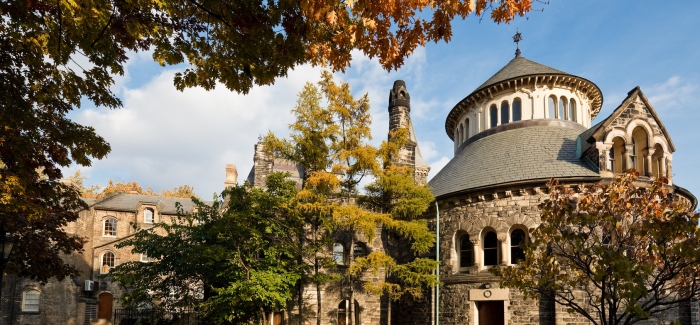For many students a scholarship to study in the US or Canada at graduate level is the Holy Grail. However, for most, finding a scholarship isn’t going to be plain sailing. If it was, everyone would have one! Let's consider the bigger picture and the options available.
OECD statistics show that in the US over 70% of international Masters students were funded by personal finance, while institutional financial awards accounted for less than 20% of all fees paid by international students. Scholarships are, by definition, the exception rather than the norm.
Competition for scholarships is fierce and the recession has done little to help. However, the financial clout of leading universities in the US and Canada, coupled with significant government investment in attracting the best students, means there are still a plethora of funding avenues out there for those willing to look hard enough. If you’re prepared to show a bit of perseverance and adaptability, and look beyond the most obvious avenues to see what alternative sources of funding could be out there, you will improve your chances considerably.
Canada
The cost of graduate study at universities in Canada is often significantly lower in the first place than those below the border, and graduate scholarships are available at both governmental and institutional level. The best source of funds tends to be individual universities and colleges, many of whom offer a range of different scholarship types that cover tuition costs or living expenses and sometimes both. Many awards are based solely on academic merit and therefore financial aid is not taken into account through the application process.
The Canadian government also offers a range of awards for graduate students as do a large number of individual universities. A free service coordinates most scholarships and is available at: www.scholarshipscanada.com. There are also a number of scholarships that offer funds to cover tuition fees and living expenses, administered by the Association of Universities and Colleges of Canada.
US
At top US universities a full-fee remission, along with a living grant, is often available to students accepted onto doctoral programs. This may also include your Masters degree, but usually only as part of a sequential course leading on to a PhD. In contrast to undergraduate education, where admission and financial awards are controlled at institutional level, US graduate education is quite tightly controlled at departmental level. Funding for certain fields tends to be more heavily subsidized than for others. For example, a student of physics, chemistry, or biology may find institutional funding more readily available than a student of humanities, the social sciences, or education.
There are also independent foundations and scholarship organizations that provide funding for students studying in the US. Many of these awards will also pay for living and travel expenses. Once such organization is the US-UK Fulbright Commission, which grants between six and ten postgraduate awards in any discipline at the US institution of the UK student’s choice. The award covers tuition fees, health insurance, and living expenses for the first year of study only. Funding directories, such as The Grants Register (Palgrave Macmillan) publishe annually, show there are hundreds of independent awards available, so doing as much research as possible is a key factor in getting funding.
Alternative funding
An alternative funding avenue that will appeal to the athletically gifted is sporting scholarships, which are far more lucrative and widespread in the US than in the vast majority of other countries. UK graduate Charlotte Buxton studied for a two-year master’s degree in creative writing at Loyola Marymount University (LMU) in Los Angeles, USA with the help of an athletic scholarship. “Most colleges in the US give a range of financial support to student athletes in all kinds of sports - from the obvious, like American football, baseball or softball, and basketball, to golf, soccer, and cheerleading,” she says.
One thing is for sure: if you apply in a haphazard manner, at the last minute and without sufficient research and planning, your chances of securing funding for your graduate study are minimal. On the other hand, with full-fee awards worth anything up to US$30-40,000 per year at top US universities - and in some cases with a stipend for living expenses on top of that - the hours you spend researching, preparing and submitting your scholarship applications could end up being some of the best-paid work you ever do.










